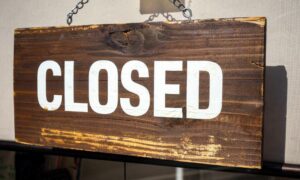
In January, Nevada’s gaming revenue continued the impressive run of 2022 and even exceeded it. State-wide casinos won $1.27 billion, as revealed by the Nevada Gaming Control Board’s monthly report. This represents a significant rise of 18% from the previous year. Moreover, this is the 23rd straight month that casinos in Nevada recorded earnings of over a billion dollars.
As expected, slot machines generated the highest revenue for Nevada casinos, bringing in $874.5 million. Even though sportsbooks received $935 million in bets, they only profited by $50.4 million. This represents a minor 1% increase in revenue compared to the previous year.
Gaming revenue on the Vegas Strip saw a substantial increase from the previous January, reaching $713.2 million, signifying a 25.7% rise from the prior year. Similarly, Downtown Las Vegas casinos, located in “Old Vegas”, also experienced a significant rise in gaming revenue, earning $84.9 million, a 25.45% increase.
How people gambled in January
Online gambling in Nevada doesn’t encompass casino site gambling. The legislation only permits online poker and online sports betting. As the global hub of gambling, Nevada’s lawmakers should contemplate revising these regulations soon.
Every month, gaming revenue in Nevada follows a similar pattern. Slot machines typically account for a significant portion of this revenue, with other popular games taking up a large middle segment. The term “slot machines” encompasses video poker, video keno, and other video gaming machines, which are prevalent on the casino floor. Furthermore, bar-top games are categorized as slot machines, contributing to their widespread presence in today’s casinos.
Today in Nevada, the majority of slot machines are large, flashy, and noisy penny slots. In January, these games contributed $285.9 million to the total of $874.5 million that casinos earned from slot machines.
In Nevada casinos, Blackjack is the most favored table game. As of January, Nevada’s casinos housed 1,949 blackjack tables.
Despite having significantly fewer games, Baccarat occasionally surpasses Blackjack in monthly earnings. As of January, Nevada casinos housed 405 Baccarat tables. The revenue disparity is balanced when international high-stakes players come to Nevada to indulge in Baccarat.
All casino games in Nevada experienced an increase in gaming revenue in January. Here is the amount they accumulated from players in that month:
- Blackjack: $120.1M
- Baccarat: $89.9M
- Betting on sports: $50.4 million
- Roulette: $46.2M
- Craps: $39.7M
This list might see changes at the top in February, as Lunar New Year often brings many international visitors who favor baccarat to Las Vegas.
Nevada sports betting in January
The unique blend of tourists and residents in Nevada sets its gambling scene apart from most states in the country. This is evident in the sports betting revenue, which is frequently overshadowed by other casino games.
In January, sports bettors in Nevada placed wagers totaling $935 million. The casinos retained 5.39%, earning a profit of $50.4 million.
Sports betting in Nevada is notably distinct from states that legalized sports betting following the repeal of the Professional and Amateur Sports Protection Act.
For instance, during its initial month of legalized sports betting, Ohio sportsbooks retained 20% of all bets. This amount is nearly quadruple that of what Nevada sportsbooks held for the same month, largely due to wider betting options, remote account registration, and operator promotions.
In January, mobile devices accounted for 62% of all sports bets in Nevada. In contrast, states that have recently legalized sports betting typically receive around 90% or more of their wagers online or through mobile devices.
Although Nevada’s sports betting may lack some features, players don’t lose nearly as much by percentage compared to other states that offer similar poor returns to Nevada’s penny slots.
Expect a decline in sports betting revenue when the official data for February is released. This is not just due to the Caesars and William Hill apps crashing during the Super Bowl, but also because the initial revenue and hold numbers were reported inaccurately and were lower than the previous year.







